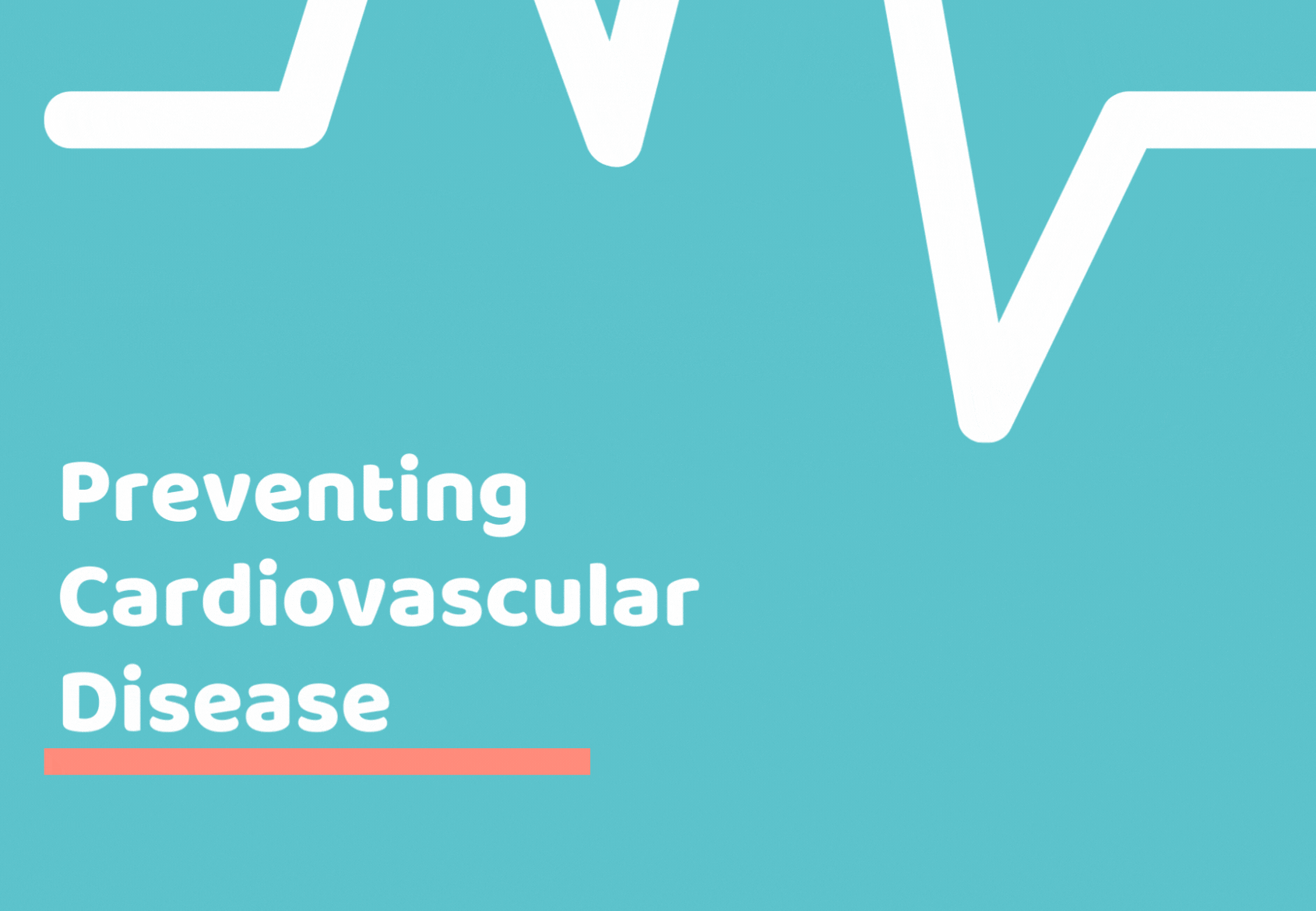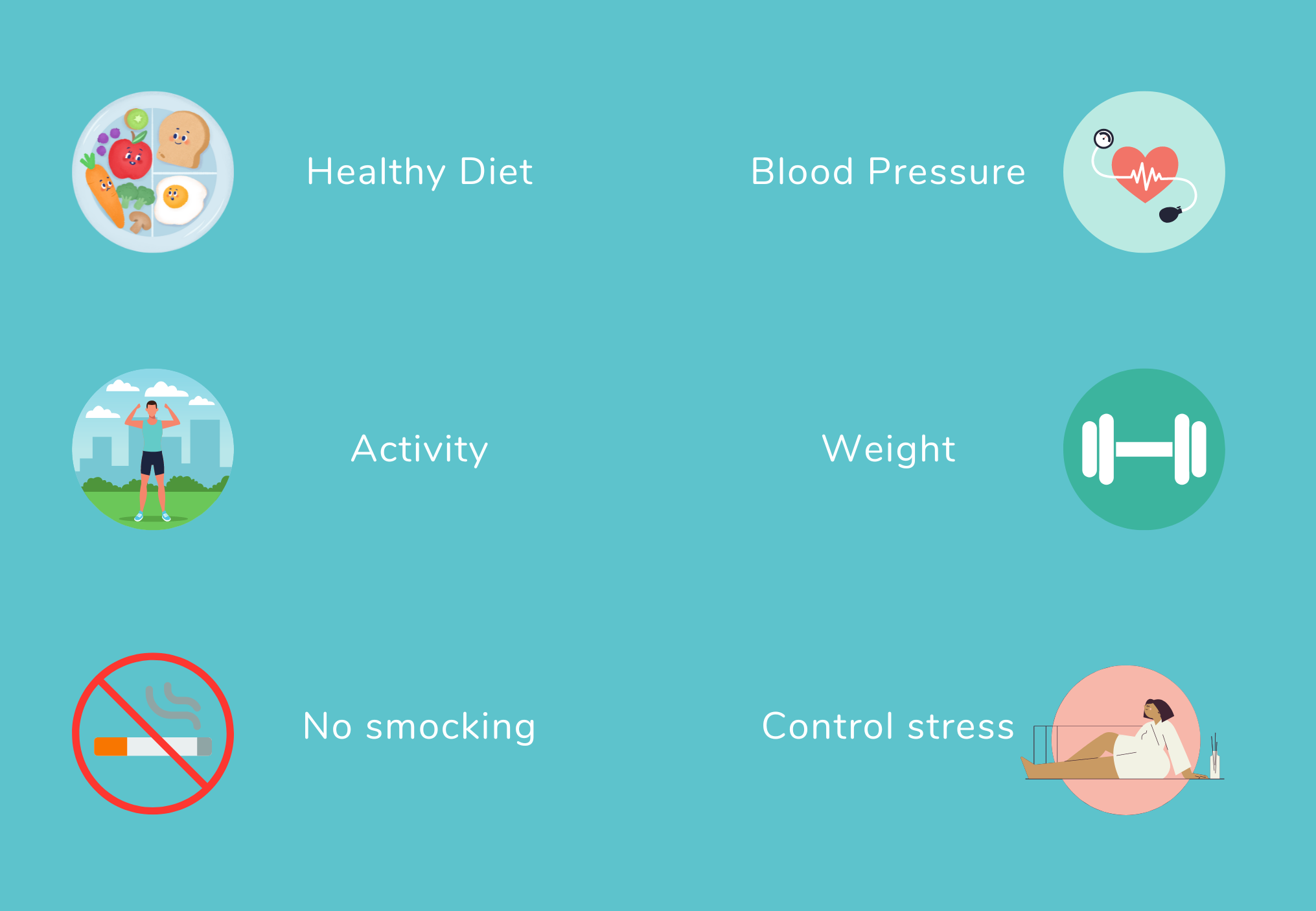Cardiovascular disease (CVD) remains one of the leading causes of death worldwide. However, many cases of CVD are preventable through lifestyle modifications and proactive healthcare.
This article explores key strategies for preventing cardiovascular disease and maintaining a healthy heart.

Causes of cardiovascular disease
Cardiovascular disease, including conditions like heart disease and stroke, can have multiple causes. Here are some of the key factors that contribute to the development of cardiovascular disease:
- Unhealthy diet: A diet high in saturated and trans fats, cholesterol, salt, and added sugars can increase the risk of cardiovascular disease. These dietary choices can lead to obesity, high blood pressure, high cholesterol levels, and the formation of plaques in the arteries.
- Lack of physical activity: Leading a sedentary lifestyle without regular exercise can be a significant risk factor for cardiovascular disease. Physical inactivity contributes to obesity, high blood pressure, poor circulation, and other conditions that increase the likelihood of heart problems.
- Tobacco use: Smoking or exposure to secondhand smoke damages blood vessels, increases blood pressure, reduces oxygen levels, and promotes the formation of blood clots. These factors significantly raise the risk of cardiovascular disease, including heart attacks and strokes.
- High blood pressure: Hypertension, or high blood pressure, strains the arteries and forces the heart to work harder to pump blood. Over time, this can damage blood vessels and increase the risk of heart disease.
- High cholesterol levels: Elevated levels of LDL (low-density lipoprotein) cholesterol, commonly known as “bad” cholesterol, can contribute to the buildup of plaques in the arteries, leading to atherosclerosis and increasing the risk of heart disease and stroke.
- Diabetes: People with diabetes are at a higher risk of developing cardiovascular disease. High blood sugar levels can damage blood vessels and nerves, leading to atherosclerosis and other heart-related complications.
- Obesity: Excess body weight, particularly abdominal obesity, is associated with an increased risk of cardiovascular disease. Obesity can contribute to high blood pressure, high cholesterol levels, insulin resistance, and inflammation, all of which are factors in heart disease development.
- Family history and genetics: Individuals with a family history of cardiovascular disease are more likely to develop the condition. Genetic factors can influence blood pressure regulation, cholesterol metabolism, and other aspects of cardiovascular health.
- Chronic stress: Prolonged exposure to stress can lead to unhealthy coping mechanisms, such as overeating, excessive alcohol consumption, or smoking, which can increase the risk of heart disease.
Heart disease and stroke statistics (2022)
• According to 2015 to 2018 data, 121.5 million or 47% of adults in
The United States has high blood pressure.
• According to 2018 data, approximately one in four adults in the United States is
1 person (24.0%) reported doing enough exercise activities
Rhythm and muscle strengthening in free time to meet instructions
about physical activity.
• According to 2019 data, the percentage of current smokers in the United States is
1 in 7 adult males and 1 in 8 adult females.
• According to 2020 data, 19.6% of high school students use drugs
electronic foil for the previous 30 days. According to 2019 data, 4.5% of adults
members use e-cigarettes every day or on certain days of the day
30 days before.
By : www.heart.org/statistics
Strategies for a Healthy Heart
Adopting a Healthy Diet
A well-balanced diet plays a crucial role in preventing cardiovascular disease emphasize the consumption of fruits, vegetables, whole grains, lean proteins, and healthy fats while limiting the intake of saturated and trans fats, sodium, and added sugars. This promotes optimal heart health and helps manage risk factors such as high cholesterol and hypertension.
Regular Physical Activity
Engaging in regular physical activity is essential to maintaining heart health. Research shows that regular exercise increases our lifespan. At any age, exercise is essential. Engage in activities like brisk walking, jogging, cycling, swimming or dancing to reduce your risk of cardiovascular disease and improve your overall fitness level.
Avoiding Tobacco Use
In addition to affecting the lungs and causing cancer, tobacco use is a major cause of cardiovascular diseases such as blocked blood vessels or heart failure,… Quitting smoking and avoiding secondhand smoke makes significantly reduce the risk of developing heart disease. Seek support from health care professionals, join smoking cessation programs, or consider nicotine replacement therapies for successful smoking cessation.
Managing Blood Pressure
High blood pressure (hypertension) is the leading cause of CVD. High blood pressure is a very common condition in the elderly even today it tends to appear even in young people. Therefore, we must monitor our blood pressure regularly and take steps. needed to keep it in the healthy range. This may include lifestyle changes such as reducing sodium intake, exercising regularly, maintaining a healthy weight, and taking prescription medication if needed.
Controlling Cholesterol Levels
Elevated cholesterol levels contribute to the development of atherosclerosis and increase the risk of CVD. The increase in cholesterol content is mainly caused by the consumption of a large amount of harmful fats found in fast foods, fried foods,… Applying a heart-healthy diet, exercising regularly and consult a health care professional to have cholesterol checked. In some cases, medication may be prescribed to effectively control high cholesterol.
Maintaining a Healthy Weight
Obesity and excess weight strain the heart and increase the likelihood of developing CVD.What we need to do is maintaining a healthy weight through a combination of regular physical activity and a balanced diet and increasing fiber intake from fruits and vegetables and limit consumption of fast food and high-cholesterol foods. Aim for a body mass index (BMI) within the healthy range and seek guidance from healthcare professionals if weight management becomes challenging.
Managing Stress
Chronic stress can negatively impact heart health. Implement stress management techniques such as regular exercise, relaxation exercises, mindfulness, and engaging in hobbies or activities that bring joy. Additionally, seek social support and consider professional counseling if stress becomes overwhelming.

Conclusion
In order to protect ourselves and our family to have a healthy heart, we must first gain knowledge about cardiovascular diseases. We provide you with the necessary knowledge, the most practical and effective solutions. By implementing these strategies, individuals can significantly reduce their risk of developing cardiovascular disease and promote a healthier heart.
By: Health Medici and GPT



















